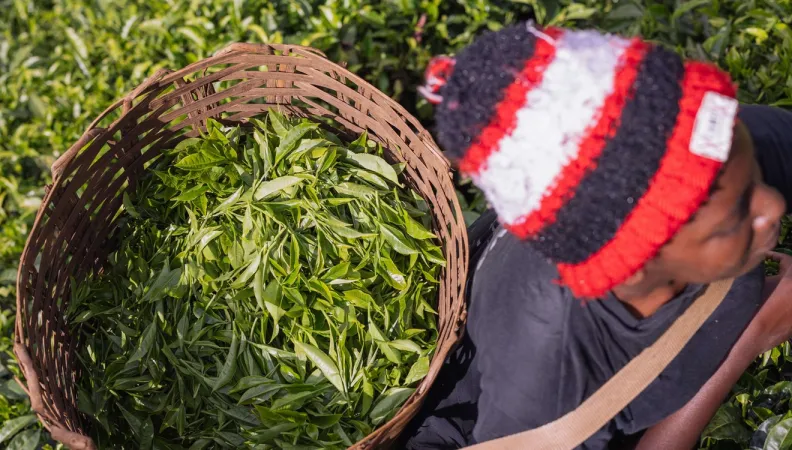Share the page
“Women are the Backbone of Agriculture in Haiti”
Published on

Women farmers in Haiti face a host of challenges: lack of access to public services and water, climate change… On the occasion of the International Day of Rural Women, we went out to meet four Haitian women who have a passion for farming and often manage to combine farming, livestock breeding and commercial activities.
Haitian women living in rural areas face countless difficulties. According to the Sixth Survey Mortality, Morbidity and Utilization in Haiti 2016–2017 (Emmus VI), 20% of them have had no schooling, against 6% in urban areas. They have very limited access to basic social services, such as education, health, social protection and mobility. It is also more difficult for them to find a job.
But the lives of these women are not just about the barriers they face. Four women farmers living in communal sections in southern Haiti tell us their stories.
At 23, Yayoune juggles between nursing studies and farming, livestock and commercial activities. With her income from farming, she has been able to buy her own plot of land, which she farms with help from her fiancé.
Her story is very much like that of Manouchetha who, after studying law and communication, left Port-au-Prince to live in the communal section of Nicolas, in Aquin. Today, she is reaping the benefits of several years of hard work. She not only manages several farms, she also owns a restaurant, a beauty salon and a cosmetics store. And she manages goat and cattle farming activities. This is also the case for Estania and Guerlande, who combine commercial and livestock activities with farm work.
Further reading: “I didn’t exist”: Ending the Ordeal of Haiti’s Undocumented
Farming brings freedom
These women all share the same passion for farming and are farmers by choice. “Before my return to Nicolas, I knew nothing about farming,” says Manouchetha. “I now love working the land.” Her words echo those of Guerlande, who speaks strongly about the sense of freedom that farming gives her: “When you work for other people, you’re reliant on them. Despite the difficulties, with farming I’m free. I’m proud of it!”
Yayoune and Estania often spend time looking at their land. They find it beautiful at certain times. “I sometimes post photos of my fields on the networks,” says Yayoune, who very much represents the Generation Z.
But at the mention of emigration, several of them admit that they would leave if they could. “But under the right conditions, with all my family,” says Guerlande. “If I leave, I’d like to be able to continue farming, like one of my neighbors who’s currently living in Canada,” says Yayoune. Manouchetha’s plans for the future are very clear. Her dream is to set up a big farm in Nicolas: “As long as the province isn’t affected by insecurity, I’ll stay at home and farm.” They all speak about their attachment to the country: “I love Haiti,” says Guerlande.
Further reading: Fighting for Female Farmers in West Africa
Potential just waiting to be tapped
But they do face some real barriers in their daily work: the lack of access to public services, the loss of income due to the variability of the weather, the lack of money, and physical fatigue. So, any support they receive is a real help. For example, Guerlande says that with the seeds and goats she received through the Project to Support Irrigation in the South (PAIS), financed by AFD, she has been able to increase her income, save, and pay off two years of arrears for her daughter’s schooling. With the grant she received, Yayoune no longer has to sell cattle to pay for ploughing services. Manouchetha has been able to increase her herd with the goats she received from PAIS. And Estania says that the channel rehabilitation works conducted by PAIS will resolve her main problem: access to water.
So, all these women hold a potential in their hands just waiting to be tapped. The €13 million of support from AFD to the Haitian Ministry of Agriculture through the PAIS project thereby aims to improve agricultural production in southern Haiti. “Agriculture is part of AFD’s DNA,” says Radhia Oudjani, AFD’s Director in Haiti, “This is now also the case for the support for a more feminist approach to development. One of AFD’s priorities is to support these rural women who want to develop their activities and have a sense of fulfilment. They are the backbone of agriculture in Haiti.”
